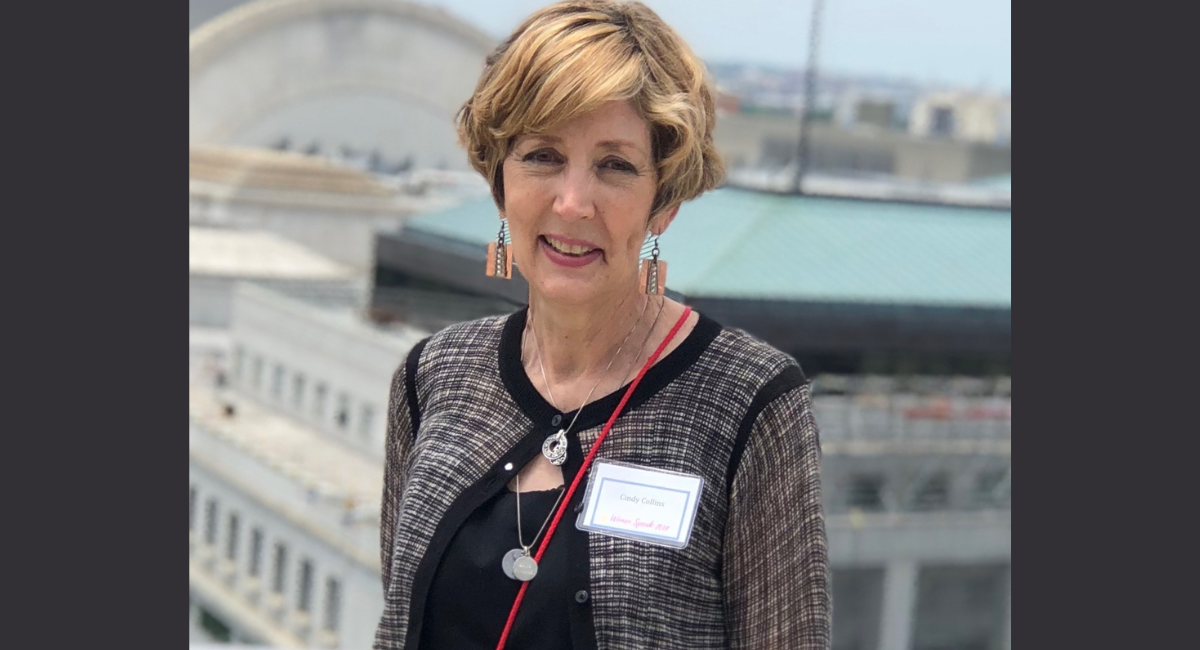By most standards, 19-year-old Cindy Collins was a naïve college student when she faced an unplanned pregnancy. It was 1973 and she was unaware of anything outside her immediate sphere of daily living. She didn’t know much about the women’s movement or the effort to legalize abortion nationwide through legislation.
“All I knew at the time was that I was confused and afraid,” Collins told Live Action News. “Here I was in a relationship with my first boyfriend and just a freshman in college. My roommate suggested I go to Planned Parenthood and they would help me.”
A survivor of childhood sexual trauma, Collins dreaded the possibility she’d have to leave college to live with her parents. She was desperate for a solution, and Planned Parenthood appeared to be the answer.
“Once there, they told me my baby was just a clump of tissue,” Collins said. “We were given the option of going to D.C. or New York to have the abortion. The counselor told me in a few weeks Roe would be law and abortion would be legal everywhere, not just in a few states. She seemed pleased about that.”
Collins’ boyfriend borrowed some money, and they jetted to D.C. Once there, the shuttle took them to the facility where Collins joined forty other women in similar circumstances.
“They demonstrated how an abortion was done using a model,” Collins recalled. “I remember once I was in the room, the severe tugging and intense pain. It took about seven minutes. The procedure was cold and done by an anonymous doctor.”
In the waiting room, lying on a gurney bleeding heavily, Collins could hear women crying. She felt a mixture of relief and sorrow. Shortly afterward, her relationship with her boyfriend ended.
“I knew our relationship had changed the moment I walked out the door of the clinic,” Collins said. “The act of sex had created our child but also resulted in the worst pain when we decided to kill our baby through abortion.”
A life in turmoil
It wasn’t long before Collins, now a college dropout, began delving into alcohol and drugs, and engaging in sexual liaisons, which led to more abortions.
“I struggled with bulimia, secretly hoping to end my life,” she said. “I realize now that when a woman has an abortion, the spirit of death enters her body, and her self-worth takes a big hit. Shame was my constant companion, and the enemy used that to try to destroy me.”
Her life continued its downward spiral as she became involved in abusive relationships. Six years after her first abortion, Collins met her future husband and became pregnant, choosing yet again to terminate the pregnancy.
“I didn’t know where this relationship was going but when he relocated to New Orleans, I followed him,” Collins said. “I just left everything behind except for a few things. I just wanted to distance myself from my past.”
Once there, she was invited to attend church services with her boyfriend. She soon surrendered her life to Christ, beginning a new chapter in her troubled life.
“I felt I had turned the corner, but I was still suffering from the trauma of all the abortions,” she said. “I just couldn’t see a way out of my pain and was still drinking heavily.”
Healing from abortion
It wasn’t long before God connected Collins with a loving pastor who offered grace and compassion, opening the door to a journey of healing by helping her understand how God’s mercy covers sin. Now married, Collins was 12 weeks pregnant when she miscarried due to uterine scarring from multiple abortions.
“I was required to have a D&C, which felt like I was having another abortion,” Collins said. “It was traumatizing. My pastor later prayed with me, and I felt as if the Lord was helping me release my child.”
Collins finally understood that only through Christ’s redemption could she find peace. She began to witness in front of abortion facilities hoping to share God’s love with women in crisis who needed it most.
In 1985, her son, John Cristian, was conceived, and Collins remained in bed for five months of the pregnancy. During that time, she launched a pregnancy center near New Orleans which opened in 1986, to offer women an alternative to Planned Parenthood.
“Guided by the Christian Action Council, the center has helped over 40,000 women and has saved 38,000 babies to-date,” she said.
Not long after, Collins began sharing her testimony with the state legislature, prompting other women to speak up about the horrors of abortion. “It was gratifying to see hearts and minds changed by sharing our collective experiences of how abortion hurts women,” Collins said.
In 2006, after Hurricane Katrina devastated New Orleans, Collins was once again in front of the legislature sharing her testimony during the proposed revision of the state’s abortion ban.
“At this hearing, I shared how during one of my abortions, baby parts were left inside of me because of a botched abortion,” she said. “But the clinic wasn’t concerned, they told me to go home. I ended up in the emergency room.”
The testimony Collins gave to the Fifth Circuit Court of Appeals was considered by the Supreme Court in the Dobbs v. Jackson Women’s Health Organization case, which overturned Roe v. Wade.
“It’s time for our voices to be heard,” Collins said. “I will continue to testify because it’s important that people understand abortion destroys, not empowers. It leaves broken lives in its wake. We must be courageous to stand for life.”
Driven by a passion to bring the “rescuing love” of Jesus to hurting women worldwide, Collins founded Speak Hope. Its mission is to bring healing and hope to victims of predatory relationships and those experiencing the pain of abortion, abuse, and neglect.
“We are God’s chosen generation,” she said. “It’s up to us now to save women and their babies.”








